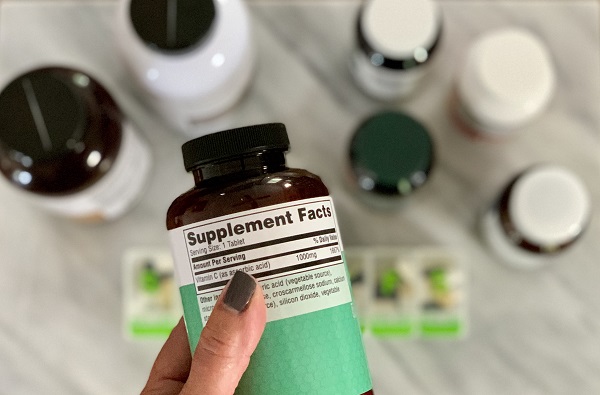When it comes to our health, we all want to make sure that we’re doing everything possible to stay healthy, whether eating a balanced diet, getting quality sleep, or plenty of exercise. Staying healthy also often includes taking supplements, which can be a great way to boost your health and well-being. However, there are a few things you should know about supplements first. This article will discuss some of the different things you need to know when buying supplements.
Contents
What The Ingredients Are
One of the first things you need to know about supplements is their ingredients. Knowing this information can be vital if you’re taking supplements because there may be any number of different items that could adversely affect your health. For example, some multivitamins contain shellfish powder, which can cause negative reactions for people who are either allergic or intolerant to shellfish. At the same time, some other supplements can contain ingredients that may cause an upset stomach. You’ll need to look at the label of your supplements to see what they include, and if you have any concerns about the specific ingredients they contain, it’s a good idea to talk to your doctor about it.
They Come In Many Forms
While the most common types of supplements are tablets, they can come in powders or liquids. The form that works best for you will depend on your personal preference and the specific health benefits you’re hoping to get out of it. For example, powders are great for getting protein into your diet because they dissolve easily in water. However, powders can be pretty messy to work with if you’re not used to them. There are also liquid supplements that often contain ginger or peppermint oil so that the supplement itself tastes pleasant rather than unpleasant.
Not All Supplements Are Safe
It’s also important to know that not all supplements are safe for everyone. For example, people taking anticoagulant medications need to be extremely cautious with supplements because they can have a negative effect on blood clotting ability and cause bruising or other health issues. People who suffer from liver disease should also use caution when taking dietary supplements because they can interfere with their medication and cause additional health problems. If you take any medication or have underlying health conditions, you should ask your doctor about any supplements you are buying.
What The Quality Is
In addition to knowing the ingredients of supplements, it’s also important that you know how good their quality is. It’s always a good idea to buy from reputable sources so that you can be sure the product is safe and effective. However, just because a supplement comes from a reputable company doesn’t necessarily mean that the quality of the product is higher than supplements from other companies. You can talk to your doctor about high-quality brands and about what specific supplements they recommend for you.
What The Benefits Are
Another thing you should know about supplements is what the specific benefits are for each supplement. For example, if you’re taking omega-3 fatty acid supplements, it can benefit your heart health and lower cholesterol levels. However, if you’re taking omega-6 fatty acids instead of omega-3s, it won’t have the same effect on your health. This is why it’s important to know what benefits you can get from each supplement so that you can choose the right one for improving your health and well-being.
What The Side Effects Are
It’s also important to know the possible side effects of supplements so that you can be aware of them and take steps to minimize any potential risks. Even if a supplement is highly beneficial to your health, there may still be some adverse side effects associated with it. For example, some supplements can cause anxiety or insomnia in some people. However, there are some steps you can take to minimize the likelihood of experiencing any side effects from supplements. Some include taking the supplement at a time when you won’t need to do anything physically demanding, taking it with food rather than on an empty stomach, and starting your supplementation regimen at a low dose.
They Are Not All Effective
You should also be aware that not all supplements are effective, and some may even be completely useless. Many supplements out there have been proven to be ineffective as a treatment for specific conditions. Some supplements aren’t even as effective as taking a placebo pill with no active ingredients at all! So before buying any supplements, it’s important to do some research and find out if others have found them to be effective. For example, you can check reviews of supplements on sites such as Consumer Lab or Examine so that you know which supplements are helpful and which ones you should avoid.
They May Contain Harmful Ingredients
Without even knowing it, you might be taking a supplement that contains harmful chemicals and ingredients. Some supplements can contain artificial sweeteners or colors, which have been linked to cancer in animal studies. In addition, some supplements may contain dangerous contaminants such as pesticides or lead from soil or equipment. While the FDA regulates supplements to ensure their safety, some supplements might still be more dangerous than others. The best way to avoid this is to buy supplements from reputable companies that go through quality testing. Be sure to read the ingredients list and avoid chemicals that seem harmful or anything chemical that you are unsure what it is.
Conclusion
There are many important things to keep in mind when buying supplements. You should know what the benefits and side effects are of each supplement you’re interested in before buying it, as well as its ingredients and whether or not it’s effective. It’s also a good idea to buy from a reputable company that ensures their supplements are safe before consuming them. As with making any health changes, you should speak with your doctor before starting to take any new supplements so they can tell you whether it is okay for you to take them or not.










